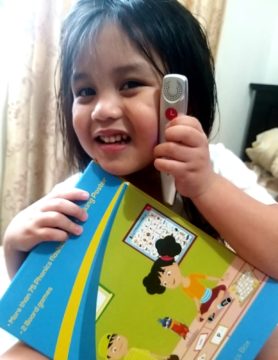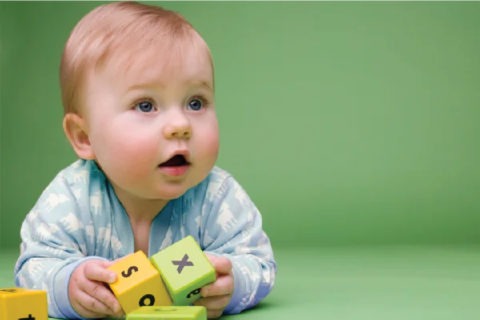
i-have-made-a-wise-decision-reveals-a-proud-doctor-mom-from-vijaywada-india
June 18, 2021
Dealing with Toddler Temper Tantrums
March 11, 2022From the time that a child is born and all through their early childhood years, children use their senses to explore and make sense of the world around them. They do so by touching, smelling, seeing, hearing, and tasting. Both children and adults; especially children learn best, and most effectively retain information when they use and engage with their senses. For example, most of our fond and cherished memories are associated with us engaging with one or more of our senses; the smell of a certain type of food or the summer night campfire, the lyrics of the song you memorized as a child, a song you would sing with your childhood friends, etc. Now, when your eyes, nostrils, eardrums or tongue are stimulated by these familiar visuals, smells, sounds or taste respectively, your mind will take you back to those days, triggering a vivid flashback.
Being able to provide your children with the environment and opportunities to explore the world around them through the use of their senses is paramount to their brain development. It aids in building nerve connections in the brain pathways. This makes way and leads to children having the ability to make more complex tasks and support cognitive growth, problem solving skills and abilities, and gross motor skills. Talking about the 5 Senses, they are:
- Taste: It is the stimulation we feel when our taste receptors react to the chemicals that are in our mouth.
- Smell: It is the stimulation of our smell receptors in our nose.
- Hearing: It is the sound receptors in our inner ear reacting to the many sounds we receive.
- Sight: It is the light receptors in our eyes being stimulated, which our brain then perceives and subsequently interprets as images.
- Touch: It is the stimulation that comes from the touch receptors on our skin reacting to the heat or cold, pressure, vibration, etc.
And, there are two that we commonly and often miss and overlook; those being ‘Balance’ and ‘Body Awareness (Proprioception)’.
Balance: It is the stimulation of the vestibular system present in the inner ear, relaying information to our brain about our body position in relation to gravity.
Body Awareness (Proprioception): This is the feedback and response that our brain receives from the stretch receptors in our muscles and pressure receptors in our joints which inform us of how our bodies are positioned in the space around us.

So, what is ‘Sensory Play?’
Sensory play is any activity that involves stimulating your young child’s senses – sight, smell, taste, hearing, touch, body awareness and balance. Sensory activities facilitate, allow for, and naturally encourage your child’s curiosity and sense of exploration and adventure through the use of scientific processes whilst they play, investigate, create and explore.
Partaking in sensory play and activities give your children the opportunities to refine their thresholds for the various types of sensory information, thus aiding their brain in creating and strengthening connections to process and respond to sensory information. For example, early on in their school life, your child may find it difficult to appropriately communicate and play with a peer or friend when there are a myriad of unpredictable factors and noise in the environment around them. However, through sensory play they will explore and tackle the near-infinite and unpredictable happenings, sounds and tasks around them.
As the child begins to develop trust and an understanding of the environment and world around them, it helps them create, build and develop positive pathways in their brain that lets them know that it is safe to engage with the environment and world around them. Sensory play aids in shaping what children believe to be safe and positive. This ultimately, shapes what children understand and believe to be positive and thus, the choices children make; impacting behavior.

Here are the five reasons why sensory play is beneficial for your child:
- Scientific research has shown results that sensory play builds positive and good connections in the brain’s pathways, which have a positive impact in the child’s ability to carry out more complex learning and day-to-day tasks.
- Sensory play supports and develops language skills, cognitive growth, problem solving skills, fine and gross motor skills, and their ability to interact and thrive in social environments.
- Sensory play encourages scientific thinking.
- Sensory play aids in developing and enhancing your child’s memory.
- Sensory play has proven to be extremely effective in calming anxious or frustrated children.
- Sensory play helps children understand sensory attributes.
Having books for babies, picture books for infants, fun math games for kids, toys that enhance exploration and doing group activities around the house go a long way in developing the senses. The Learning Time A+ Program has all these covered, and more. Have a look. Ask for a free presentation. Visit www.learningtime.co




